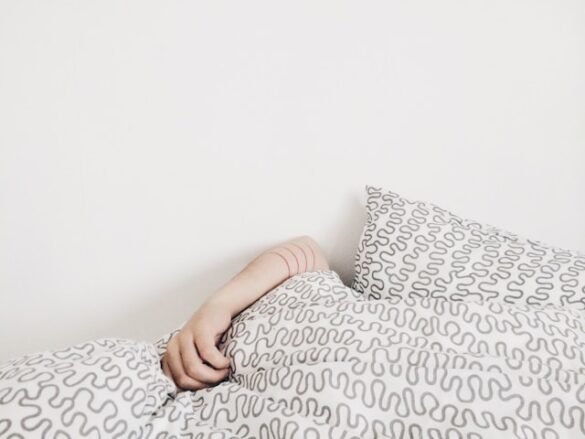Sleep—it should be our most natural healer. But for millions of women, it’s more of a nightly battle. From hormonal shifts to stress, the reasons behind sleep troubles in women are complex, yet often overlooked.
When Sleep Becomes a Struggle
If you’re tossing and turning at night, you’re not alone. Women are nearly twice as likely as men to experience sleep disorders. Why? Biology plays a big role. Throughout a woman’s life—from menstruation to pregnancy to menopause—hormones fluctuate, often disrupting sleep cycles.
During menstruation, changes in estrogen and progesterone can trigger insomnia, headaches, or mood swings that keep you awake. Pregnancy brings its own set of sleep challenges—think heartburn, leg cramps, or the frequent urge to visit the bathroom. And in menopause, hot flashes and night sweats often make restful sleep feel impossible.
But it’s not just hormones. Stress, anxiety, and responsibilities at home or work can weigh heavily on women, especially during midlife. Over time, this sleep deprivation can take a real toll—on mood, immunity, heart health, and more.
Common Sleep Disorders in Women
Let’s break down the top culprits:
- Insomnia: Trouble falling asleep, staying asleep, or waking up too early affects up to 1 in 3 women.
- Restless Legs Syndrome (RLS): A tingling or crawling sensation in the legs—often worse at night—can disrupt falling asleep. RLS is more common in women, especially during pregnancy.
- Sleep Apnea: While often underdiagnosed in women, this condition causes repeated breathing pauses during sleep and leads to serious fatigue. Post-menopausal women are at greater risk.
- Shift Work Sleep Disorder: Irregular work hours, common in healthcare and service jobs, can wreak havoc on circadian rhythms, especially for women balancing family life.
The Health Costs of Sleepless Nights
Poor sleep isn’t just an inconvenience—it’s a health hazard. Chronic sleep deprivation is linked to a higher risk of heart disease, type 2 diabetes, depression, obesity, and even certain cancers. It can also affect fertility and immune function, not to mention your energy and focus during the day.
Better Sleep Starts Here
The good news? Help is available—and it often starts with small lifestyle changes.
- Create a Sleep Sanctuary: Keep your bedroom cool, dark, and quiet. Avoid screens before bed, and try calming rituals like reading, stretching, or meditation.
- Stick to a Routine: Go to bed and wake up at the same time each day—even on weekends. Your body thrives on consistency.
- Address Underlying Issues: If you’re snoring, experiencing leg discomfort, or waking up exhausted, talk to your doctor. Conditions like sleep apnea and RLS can be treated.
- Consider Cognitive Behavioral Therapy for Insomnia (CBT‑I): This proven method helps you change thought patterns and behaviors that interfere with sleep.
For menopausal women, hormone therapy or natural supplements might ease sleep-related symptoms. Pregnant women can benefit from positional supports or guided sleep exercises designed for comfort.
Time to Prioritize Your Sleep
Women are often caregivers—at work, at home, in their communities. But to care for others, you need to care for yourself. And that starts with rest. If your nights are restless and your days are dragging, it may be time to seek help. Because when women sleep better, they live better.
